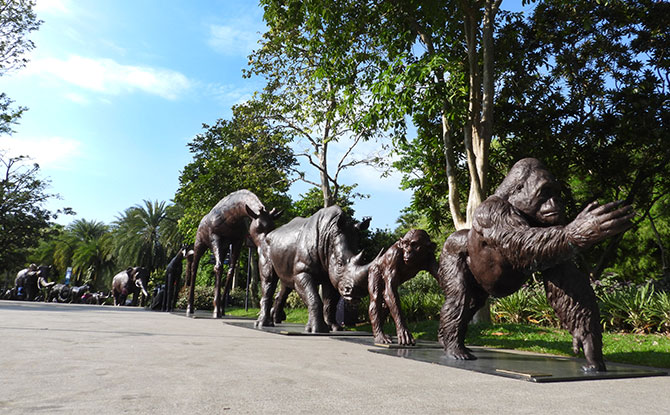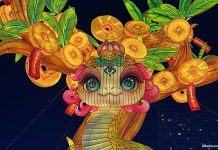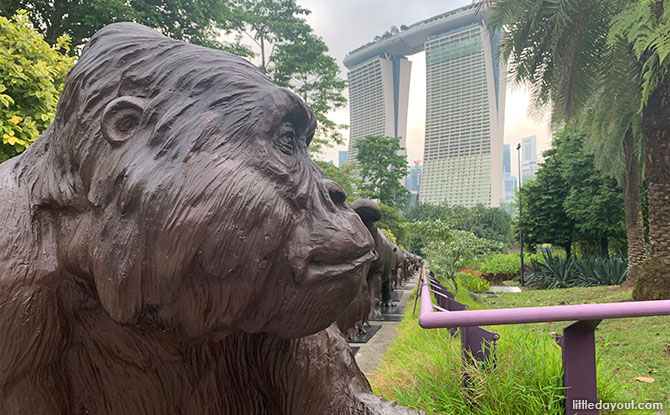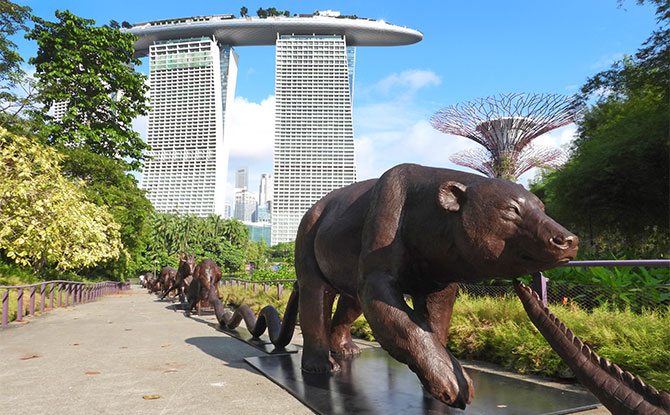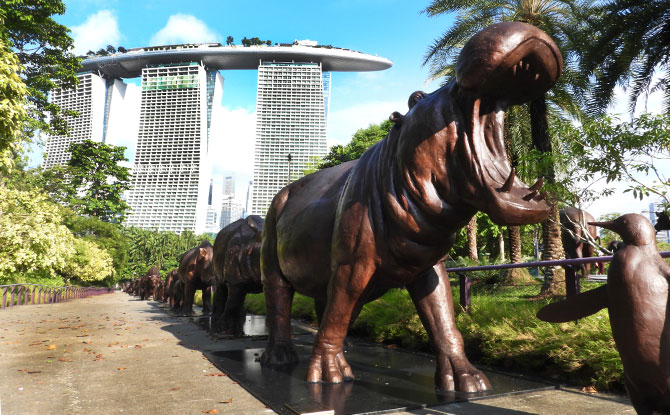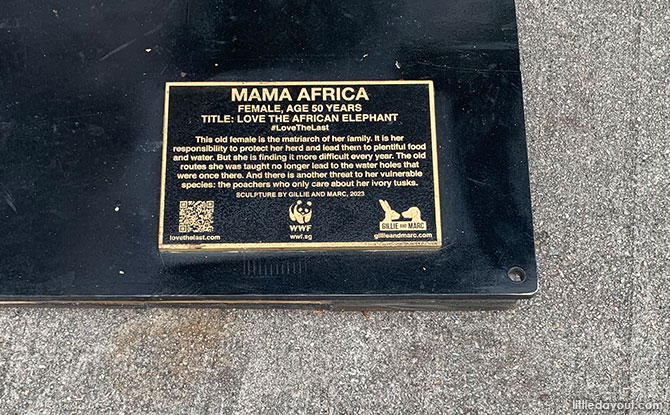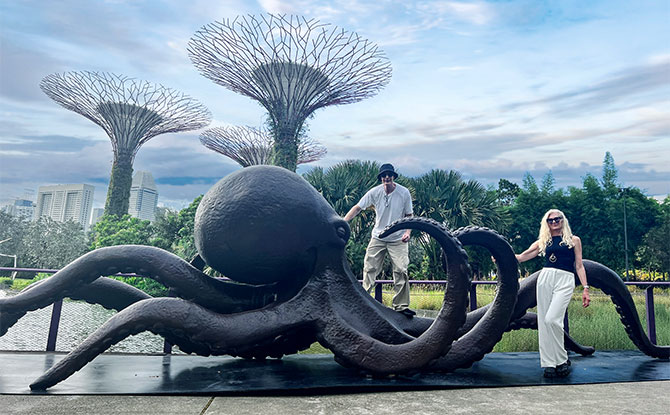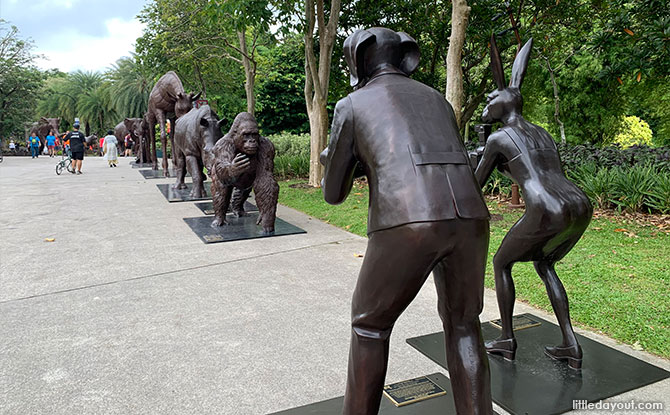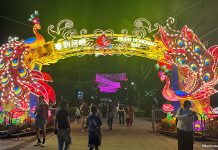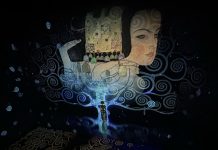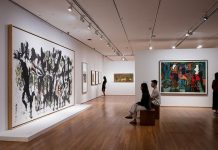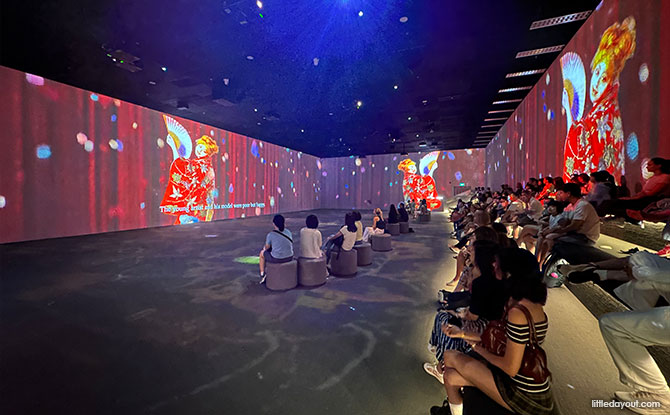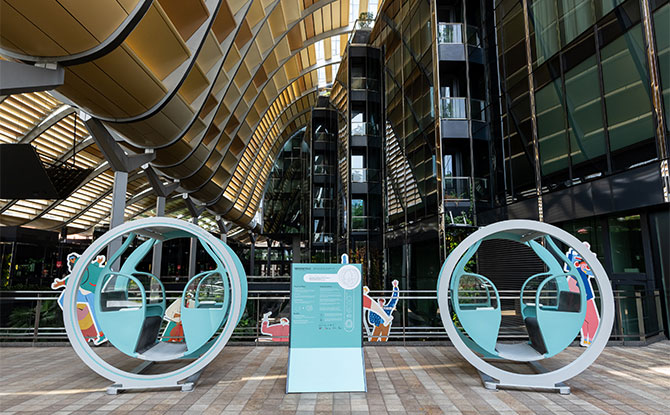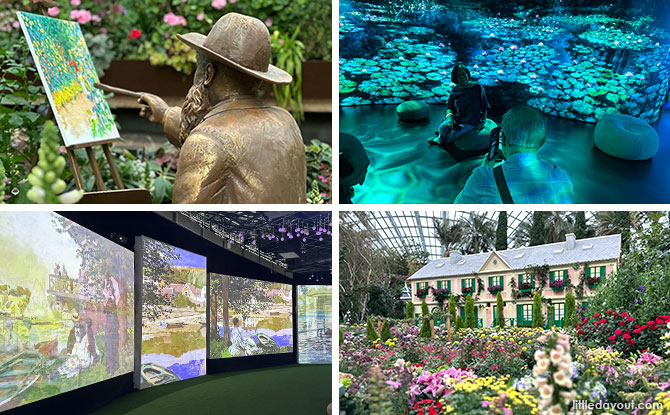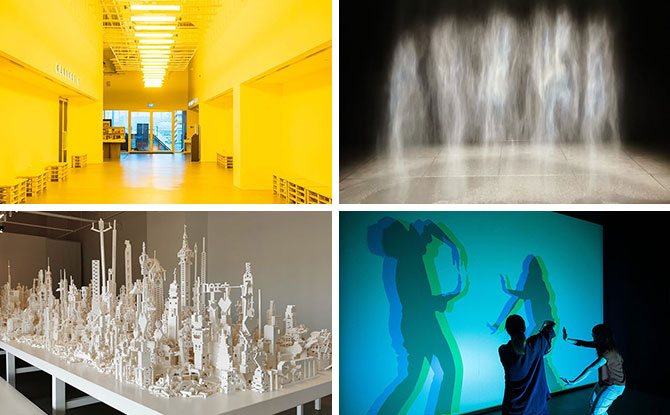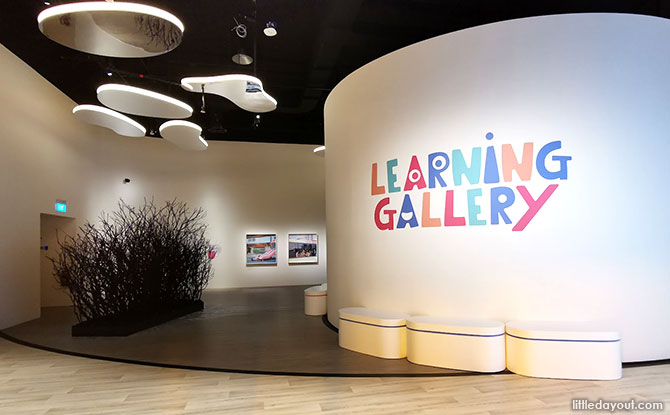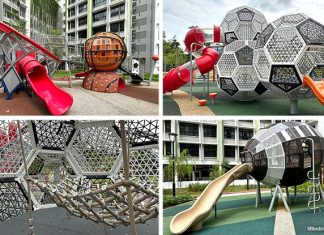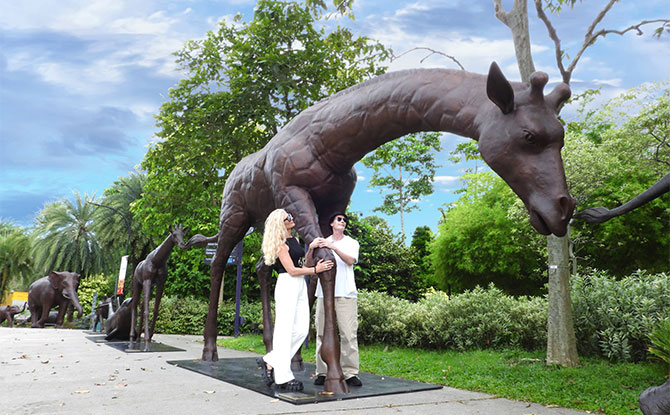
On 19 May 2023, National Endangered Species Day, Love The Last March by international artists Gillie and Marc, the world’s largest public sculpture draws attention to the plight of animals around the world.
Love The Last March is on display at Gardens by the Bay and brings attention to the rate of wildlife extinction and the need to help the animal kingdom.
Love The Last March: Highlighting the Plight Of the World’s Endangered Wildlife
The Love The Last March sculpture features a total of 60 of the world’s most endangered species.
CNY Fun: Discover Exciting Things to Do for Chinese New Year 2025
Chinatown Heritage Centre: Local Residents Enjoy Free Admission till 16 February
River Hongbao: 9 Highlights at This Year's Event
Led by a great mountain gorilla, it depicts the animals marching in solidarity to save the animal kingdom.
The Love The Last March sculpture is 192 metres in length. The sculpture is based on photographs and sketches that the artists have collected over the years of studying wildlife and animals such as the mountain gorilla, giraffe, giant panda, and the Northern hairy-nosed wombat.
While it is a sculpture about the wildlife extinction crisis, it also aims to share a message of hope and how we can also play a part in averting the crisis.
This first edition of the sculpture will be on display at Gardens by the Bay for one year from 19 May 2023 till 18 May 2024.
Interactive Features of The World’s Largest Sculpture
Not simply a static sculpture, the Love The Last March sculpture is designed to be interactive.
The public can scan QR codes on the animals to be taken to an informative web pages that provides information about the animal such as its behaviour, its diet and why it is threatened.
In addition, by scanning a QR code, the sculpture can be brought to life with a 3D animation. The public will be able to see the animals leap out of their static bronze bodies and begin their march on screen.
Artists Gillie and Marc
Artists Gillie and Marc, who are behind the sculpture, are known for the public sculptures such as The Last Three, on display at the San Antonio Zoo, which highlights the Northern white rhino and King Nyani, a sculpture with three editions and found in Chicago, Connecticut and Sydney, that draws attention to gorillas.
Explaining their inspiration for Love The Last March sculpture, Gillie and Marc said, “Usually when we create a public sculpture for wildlife, we focus on one animal per project. But the rate of extinction is picking up at a terrifying rate. We wanted to show the scale of this issue, bringing awareness of the overarching problem as well as highlighting individual species.”
“Love The Last March will be the most important sculpture we ever created so we had to
make sure it was unforgettable. We hope that with the addition of augmented reality, people will become even more inspired to march alongside the animals, joining the movement to protect the world’s precious creatures,” said Gillie.
“We believe that nobody will care about something they have never experienced. So our public sculptures are designed to give them an unforgettable experience with wildlife. By creating a hyper-realistic sculpture they can touch and study up close, combined with all the facts about the animal, we create a connection they may never have made. And with that intimate personal connection buds the beginnings of a conservationist,” said Marc.
Eventually, a total of six editions of Love The Last March are planned to be launched worldwide.
The Love The Last March sculpture be exhibited in Singapore’s Gardens by the Bay until 18 May 2024. Admission is free for the public.


